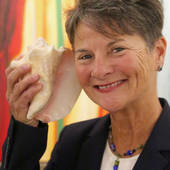What to say in follow-up calls in job search
By Amy Lindgren
Job search is a lot like tennis: Hit the ball, then hit it again when it’s returned to you. Boing, boing, boing. It’s not rocket science, and yet, as any tennis player will tell you, this simple step is really quite important. If you stop returning the ball, you lose the point.
Regarding job search then, the trick isn’t to write the most amazing resume or have a newsmaking interview. The trick is to do each job search step consistently and persistently, and to not be the first person to stop hitting the ball.
In other words, you must do your follow-up.
Which raises the question: What, exactly, should one say in a follow-up call or letter?
Let’s start with the calls, as they cause the most consternation. There’s something about going live that heightens the tension for most job seekers.
First, identify the purpose of the call. Are you trying to set a meeting? Get on a list to be interviewed? Learn your status after having been interviewed?
Now choose your words. In this situation, the more you think about it, the worse the result will be -- so don’t overthink it! Try using this general formula: Greeting, introduction, purpose.
Here’s an example for a person who was interviewed last week and is now calling the employer back.
Greeting: “Hello, Mr. Jones, this is Anna Smith.”
Introduction: “We met last week when I interviewed for the accounting job. I’m the person with eight years of experience in a business similar to yours.”
Purpose: “I’m calling to see how your hiring decision is going. I’m eager to start working for you, so I’d like to find out if there are more steps in the process or if you’re ready to hire the new person.”
Notice the absence of chitchat? No “How are you?” or even “Do you have a few minutes?” If you had an extended meeting previously with this person and feel sure they’ll remember you, go ahead and try something more personal. But in most cases, it’s better to get to the point. When you don’t know the other person, most chitchat will simply trail off and leave you in an awkward spot.
Another reason to limit the social aspect of the conversation is that you want to get your entire spiel out before the other person has time to steer the conversation elsewhere. This is especially true of calls where you are introducing yourself for the first time -- commonly known as cold calls.
Here’s an alternate introduction and purpose, for a person who has applied but not been scheduled for an interview.
Introduction: “I responded to last week’s posting for an accountant. I’m not sure if you’ve seen the responses yet, but I have eight years of experience in a business similar to yours.”
Purpose: “I’m calling because I’m eager to talk with you about this position and I think I’d do a great job for your company. I’d like to be included in the interviews. Would you be able to put me on the schedule?”
That wasn’t entirely cold, since the caller had an earlier interaction (the application) to refer to. For the record, here’s an example of an icy cold call:
Greeting: “Hello, Mr. Jones, this is Amanda Smith.”
Introduction: “We haven’t met yet, but I’m calling because I have eight years of experience in accounting and a strong familiarity with your product line.”
Purpose: “I’d like to meet with you to see if you could use someone in your accounting department. Even if you don’t have openings right now, I’d like to meet so you could keep me in mind for the next opening. I could come by on Tuesday or Wednesday at your convenience. Would either of those days work?”
When you make these calls, regardless of whether they are cold calls or follow-ups, don’t worry that you’re interrupting Mr. Jones’ day -- that’s why he has a phone. And if you get voice mail, just leave the message and call back in a few days.
Keep up this pattern for a few calls, then leave a final voice mail that says, “I’m sorry we haven’t been able to connect, but I’m looking forward to an opportunity to get together, whenever that happens. Have a great day, and here’s my phone number.”
Want a challenge? Do about 20 of these calls next week and see if you don’t end up with at least one meeting scheduled. Once you have that success, you’ll be ready to do five or 10 a day, and your job search will take off. In the meantime, watch for next week’s column with scripts for follow-up e-mails.

Comments(0)